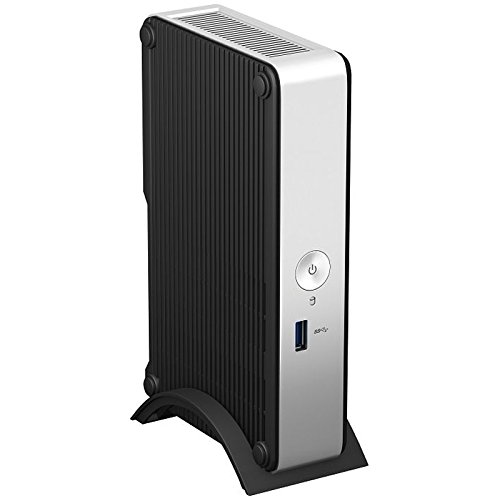Yeah; the one in the link above was utilized by MCS Michael recently relating to running Homeseer stuff on the new Arm based devices.
The RPi like device is very fast and working well with the MCS stuff today.
mcsSprinklers
Michael from MCS can mention much more of his testing here with the device in the links and related information.
There is a history here....well and for me personally it started here on Cocoontech with a "special deal" offered below a few years back. It started initially by running mcsSprinklers on Linux using an Arm based device called the PogoPlug. Thinking I purchased two models wanting to get the most memory from whatever Pogo Plug was offered. Concurrently here on CT a special deal came up relating to purchasing the Seagate Dockstar on close out. Personally went to testing both the PogoPlug and the Seagate Dockstar. Around the same time also started to play a bit with the USB Mimo mini monitor. I got bitten by these devices and purchased a few (4) using two and putting two away (still have them).
I went to testing the mcsSprinkler program running on the PogoPlug with Mono (whatever Linux flavor for a bit) user testing the mcsSprinklers program.
It worked great. Meanwhile I was able to get the Seagate Dockstar with Dockstar Debian and the USB Mimo monitor to work like a mini computer of sorts. I did turn this into a HSTouch touchscreen based on the USB Mimo touchscreen. Worked. I had been testing a bit with the PogoPlugs and noticed that they would get really warm. I had put one into the garage cabinet for connectivity to the rain8nets. It would though shut down from the heat. I then went to testing mcsSprinkers on the Dockstart Debian or ArchLinux and settled on ArchLinux.
It just worked and I pretty much left it alone. Only changes I noticed in the beginning was a long term trashing of the USB sticks. Michael fixed this by adding a second USB stick. Here shifted by using a USB connected CF card and a USB stick. I then changed again by using a USB SSD stick and a USB ZIF connected SSD drive which is still working fine today after a couple of years.
This was the very first Homeseer Plugin that I tested to run in mono Linux way back and truely the first test of running in Linux Mono a Homeseer application.
Fast forward to the Homeseer Zee (2013. I purchased it because it was the first version of Homeseer to run in Linux and I couldn't wait to get my hands on it and I did. I did install it on a variety of Linux devices and builds that I was using (64bit and 32bit - though all Intel or AMD stuff)
A dialog started though sometime there about running mcsSprinklers on the RPi a few months after I purchased the Zee.
I did regrettably stated a "debbie downer" based on what I had been testing on the RPi (trying to break Homeseer) mostly that the RPI was just too slow and not to spend the time with it. Well that was me though. (well cuz too I compared the speed of the Seagate Dockstar and RPI side by side). I was not impressed; but again that is just a personal comment. Michael did mention a search to me; but here I was a bit deep into running Linux, Android or Windows on the Openpeak devices (way too deep?)
Too here I got bitten by my tabletop Openpeak device playing (and have purchased every model available) and still mostly playing with these devices.
Michael has now found the "Holy grail" like RPi on steroids to run his Homeseer Plugins and applications on an Arm based Linux device and it is working well.
Kudos to Mike on this endeavor!!!
Note I wrote the above quickly and may have missed some stuff.



